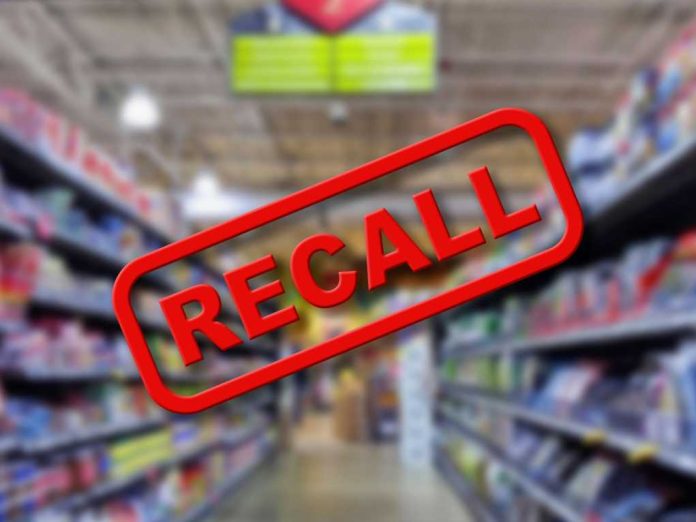
Americans nationwide face new food safety concerns as the FDA recalls frozen spinach over Listeria contamination, spotlighting how regulatory vigilance protects families from risks that often slip past government watch.
Story Snapshot
- The FDA has issued a nationwide recall of frozen spinach products distributed by Sno Pac Foods, Inc. due to Listeria contamination risk.
- No illnesses have been reported, suggesting early detection and intervention have been effective.
- The recall highlights ongoing vulnerabilities in America’s food supply chain and the necessity of strong oversight.
- Recent food recalls signal a broader issue with foodborne pathogens affecting major brands and products.
FDA Recall Targets Frozen Spinach Nationwide
On October 7, 2025, the FDA announced that Sno Pac Foods, Inc. voluntarily recalled Del Mar 35 LB Bulk Organic Frozen Spinach and Sno Pac 10 oz Organic Frozen Cut Spinach, after routine supplier testing detected Listeria monocytogenes in a bulk case corresponding to recalled lot codes. The recall affects both bulk and retail products distributed across the United States, with no reported illnesses yet connected to the contaminated spinach. The FDA’s swift notice aims to prevent outbreaks and safeguard the public, particularly vulnerable groups such as seniors, pregnant women, and those with weakened immune systems.
Sno Pac Foods has suspended production of the implicated spinach pending further investigation into the contamination source. The company is urging consumers to check their freezers for the affected products, dispose of them or return for refunds, and contact the provided hotline with questions. The recall’s targeted approach—focused on specific lot codes—helps retailers and institutions quickly identify and remove risk, a crucial step in minimizing potential health impacts and financial losses. The FDA continues to update its recall database and safety alerts as further details become available.
Food Safety Risks and Regulatory Oversight
Listeria monocytogenes is a dangerous bacterium that can cause severe illness, especially in vulnerable populations. Its presence in ready-to-eat foods like frozen spinach underscores the ongoing need for rigorous testing and transparent reporting. Recent years have seen an uptick in recalls involving not only produce, but also pasta meals, salads, and mushrooms—some resulting in hospitalizations and fatalities. These incidents highlight weaknesses in supply chain oversight and the importance of robust regulatory enforcement. The FDA’s rapid response in this case demonstrates improved vigilance, but also points to the persistent threats facing American consumers.
This recall arrives on the heels of multiple food safety alerts in 2025, including outbreaks tied to linguine noodles and prepared meals linked with Listeria. While these events are not directly connected, they reveal systemic vulnerabilities that demand attention from both regulators and manufacturers. Industry experts note that early detection and transparency are vital to protecting public health, but emphasize that more must be done to enhance supplier vetting and real-time public notification. Conservative Americans, frustrated by past government overreach and regulatory failures, expect accountability and common-sense reforms that prioritize family safety and individual liberty.
Industry Response and Consumer Impact
The immediate effect of this recall is the removal of potentially contaminated spinach from shelves, which may cause short-term financial strain for Sno Pac Foods and retailers. Consumers nationwide—especially those in vulnerable categories—are being urged to remain vigilant and monitor recall notices. In the long term, industry analysts predict changes in supplier protocols, stricter testing standards, and greater transparency in reporting contamination events. The ripple effect may extend to other frozen vegetable brands, increasing scrutiny and demand for traceability throughout the sector.
Economic losses from refunds, product disposal, and halted production are inevitable, but social anxiety over food safety could have broader consequences. Conservative communities, long advocating for limited government and personal responsibility, will watch closely to ensure that regulatory agencies act decisively without overstepping constitutional boundaries. Calls for reform will center on ensuring that agencies like the FDA function efficiently and transparently, protecting American families from harm without promoting wasteful spending or unnecessary bureaucracy.
Food safety experts agree that rapid recall action and routine testing are essential to prevent outbreaks. Public health professionals, however, warn that Listeria remains a persistent threat, especially in ready-to-eat and frozen foods. Diverse viewpoints within industry circles suggest that while current systems are improving, there is room for more stringent supplier control and faster public alerts. Ultimately, continued vigilance and common-sense reforms are key to ensuring American consumers remain protected without compromising the principles of freedom and limited government.
Sources:
Sno Pac Foods Recalls Del Mar 35 LB Bulk Frozen Spinach and 10 oz Organic Frozen Cut Spinach
Pasta Meal Producer Involved in Ongoing Outbreak Finds Listeria in Another Ingredient: Spinach
USDA announces recall of more than 3 million pounds of food over Listeria concerns
FDA Recalls, Market Withdrawals & Safety Alerts







